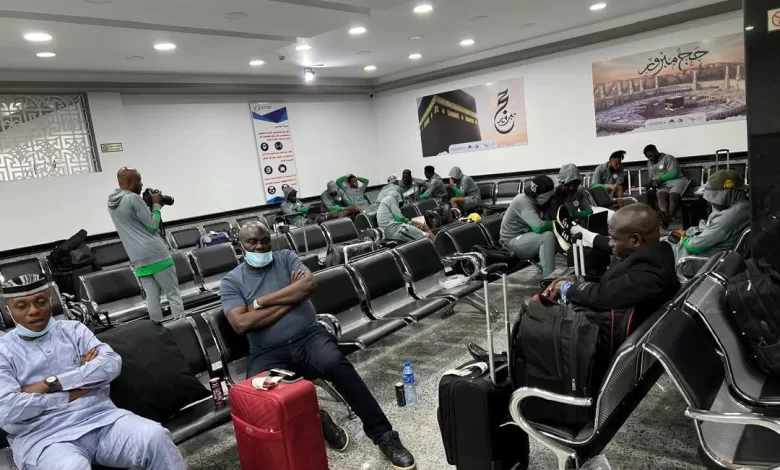‘Landing in Al Abraq was a high risk operation with no room for error, thank God we landed safely’: Reveals Tunisian pilot who flew Eagles to Libya

The Tunisian pilot contracted by ValueJet Airlines to fly the Super Eagles of Nigeria to Libya has revealed as very risky the decision by Libyan authorities to divert the flight from its original destination, which was Benghazi, the second most populous city in Libya, to Al Abraq airport, which is in Al Abraq town, almost 200 kilometres from Benghazi.
The Super Eagles were subsequently stranded for almost 20 hours with the players and accompanying officials left stranded and without food, drinks and internet access.
In a video that has gone viral on social media, the pilot, who once worked in Al Abraq revealed how the diversion happened and the risky it posed for the entire passengers.
The pilot revealed the flight plan was to land at Benina International Airport which serves Benghazi, Libya. It is located in the borough of Benina, 19 kilometers east of Benghazi.
‘We had the required approval from the Libyan Civil Aviation Authority. However, as we approached Benghazi and began our descent, we were instructed to divert to Al Abraq which is around 300 kilometers east of our destination.
‘The airport in Al Abraq was not even listed as our alternate airport, and that created a major safety concern.
‘In aviation, we carefully calculate fuel for the intended destination and reserve fuel for emergencies. Such diversions compromise safety, especially when they are made without advance notice.
‘When I insisted on landing in Benghazi according to my authorization, the response was that it was an order from the highest authority, that we will have to land at Al Abraq,’ he said in the video.
The pilot insists the decision to land in Al Abraq was not his.
‘Everything in aviation is logged, there are no secrets. I questioned the directive at least eight times and warned them that we could face fuel issues but they were adamant, that the request came from the highest authority.
‘The airport lacks basic facilities like an instrument landing system (ILS), air navigation approaches or VHF Omnidirectional range (VOR) equipment. We had to make a visual landing under marginal weather conditions, at night. It was a high risk operation with no room for error.
The ILS is a precision radio navigation system that provides short-range guidance to aircraft to allow them to approach a runway at night or in bad weather.
It is crucial for the safety and precision of aircraft landings, especially in poor weather conditions. It provides horizontal and vertical guidance to pilots, ensuring they can land accurately even when visibility is low. Essentially, it reduces the risk of human error and enhances the overall safety of air travel.
The pilot worked for two years with a Tunisian aviation company and his familiarity with local conditions proved crucial in executing a safe landing.
When a pilot hears the conditions, I just described, he will understand the difficulty. Thank God we landed safely.’




